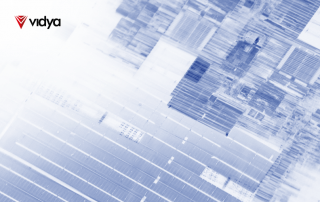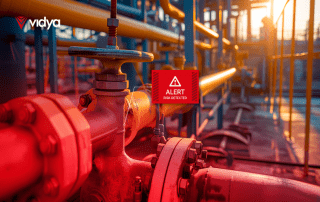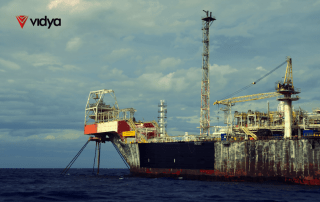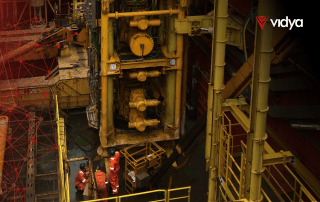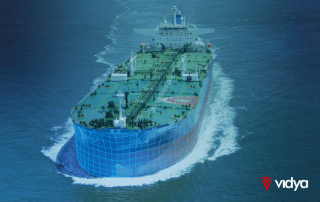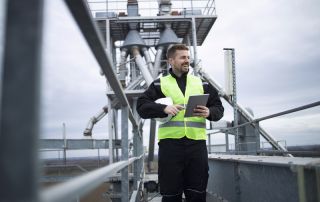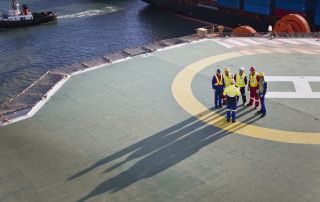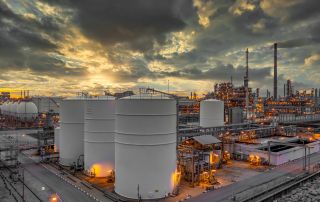Computer Vision 101: How can AI see things?
A world where computers can understand the environment around them simply by looking. This isn't science fiction anymore. It’s the new frontier of artificial intelligence called Computer Vision. It can perceive its surroundings and interpret visual information to identify objects, colors, shapes, and areas. This technology consists of a model that learns information from multidimensional data, such as images or videos, enabling machines to develop a visual perception like humans. Today, Computer Vision systems can analyze vast amounts of visual data with incredible accuracy. But how exactly was Computer Vision developed? How does it work? And what are the [...]
How to optimize Industrial Safety and Risk Management
The International Association of Oil and Gas Producers reported a 36% increase in offshore fatalities from 2020 to 2021. This concerning rise underscores the inherent safety challenges of the industry. Certainly, this sector is subjected to safety threats due to the complex processes and hazardous environments in which it operates. For this reason, high-complexity facilities such as oil and gas need to target safety and risk assessments as fundamental pieces of operational management. But what are the main concerns of the oil and gas industry regarding risk management? Concerns regarding risk management in the O&G Industry [...]
The Future Lies in the Past: Embracing Mature Fields for Tomorrow’s Energy
A 2011 study by IHS Cambridge Energy Research Associates reported that approximately two-thirds of global daily average oil production comes from mature fields and that the percentage is increasing over time. Indeed, it’s evident that mature fields have become a fundamental piece of the petroleum exploration sector, but what exactly are mature fields? According to Parshall (2012), mature fields are defined by years of production and aging infrastructure. For a field to be considered mature, it had to produce more than 50% of its established proved plus probable resource estimates or have produced for more than 25 years. In this [...]
Exploring the Depths: Understanding Offshore Oil Drilling
Until 1894, we didn’t know extracting crude oil from subsea environments was possible. This changed when the lure of offshore production enticed Henry L. Williams and his associates to build a pier 90 meters out into the Pacific — and assemble a standard cable-tool rig on it. Since then, oil extraction has evolved in unprecedented ways. In recent years, new technologies have emerged as powerful tools for addressing the inherent challenges of exploring previously unreachable resources. Indeed, subsea drilling still represents a complex operation that requires advanced techniques and skilled teams to achieve optimal efficiency and safety. And, despite the [...]
AI-driven Hull Inspections: Streamlining Safety and Efficiency
Vessels are crucial parts of different industrial operations. Considering this, the ship's main body: the hull, must be regularly inspected to ensure high asset integrity, safety, and efficiency standards. Hull damages such as cracks can lead to oil leaks, which can implicate direct emergency costs that surpass USD 50,000,000 according to Brazil's National Petroleum Agency, which is 100x more expensive than the investment to repair the defects on time (before the accident) not including compensations, fines, and asset depreciation. In this regard, hull inspections are a maintenance procedure that helps energy companies and bulk cargo transporters maintain high safety, compliance, [...]
Making the most of POB on offshore assets
As a risky environment, Oil and Gas offshore operations claim meticulous interventions from the People on Board (POB). The term is used to track and manage the workforce and ensure safety, resource allocation, and overall operational efficiency. In this sense, managing People on Board (POB) it’s a crucial and inherent challenge to the oil and gas industry. Oil and gas facilities may present risks such as explosions, health hazards, and oil leaks. Besides that, unplanned events happen, which requires workers to solve the occurrence. This harms the planning of the POB previously done and increases the downtime of the asset, [...]
Why system integration is a must
Intro As industries get more digitalized, the need for establishing an integrated digital environment increases. In this sense, the extensive amount of data that large operations generate requires interconnectedness in order to properly monitor every part of an asset’s infrastructure. In this post, we’ll take a look at why this integration is a must, the advantages it provides, and how it can improve the overall efficiency and productivity of businesses, especially heavy asset industries. The rise of digital tools and the need for integration The process of digitalization is reshaping how industries face their routines. From manufacturing to [...]
How APM is enabling longer asset life cycles while reducing downtime
Intro Managing equipment life cycle is a sensitive matter that requires a careful approach from heavy asset industries. In this context, properly addressing maintenance practices lies in reducing unplanned downtime and reactive maintenance strategies with the intent of improving asset availability and readiness. For this reason, Asset Performance Management (APM) is a key concept to understand how this process can be streamlined. However, before getting into how asset life cycles are being optimized, it is necessary to understand the role of APM. What is the role of Asset Performance Management? Asset Performance Management does [...]
Unlocking AI’s accuracy and reliability
AI's growth scenario From its early days as a theoretical concept to today's omnipresent reality, AI's journey has been characterized by exponential growth. According to a 2022 IBM research, more than a third of companies (35%) report the use of AI in their business, a four-point increase from 2021. This illustrates a key change in the way we face reality, but different from other technological revolutions: today’s tool learns from its own experience at increasingly higher speed and scale. These tools are programmed to have a human-like thought process. Moreover, they are now a reality in the [...]
Difference Between Upstream, Midstream and Downstream
Intro: The efficient asset operation in the oil and gas industry has a huge impact on the global economy and the full functioning of society. The activities involved in this industry require meticulous planning and process mapping to improve business outcomes. And, although it moves massive capital flows and employs millions of people, catastrophic risks are imminent in this sector. It is in this field that the concepts of Upstream, Midstream and Downstream come to light, which refer to the supply chain organization and its specifications, targeting at an optimal monitoring of the processes involved in each stage. These sectors [...]
